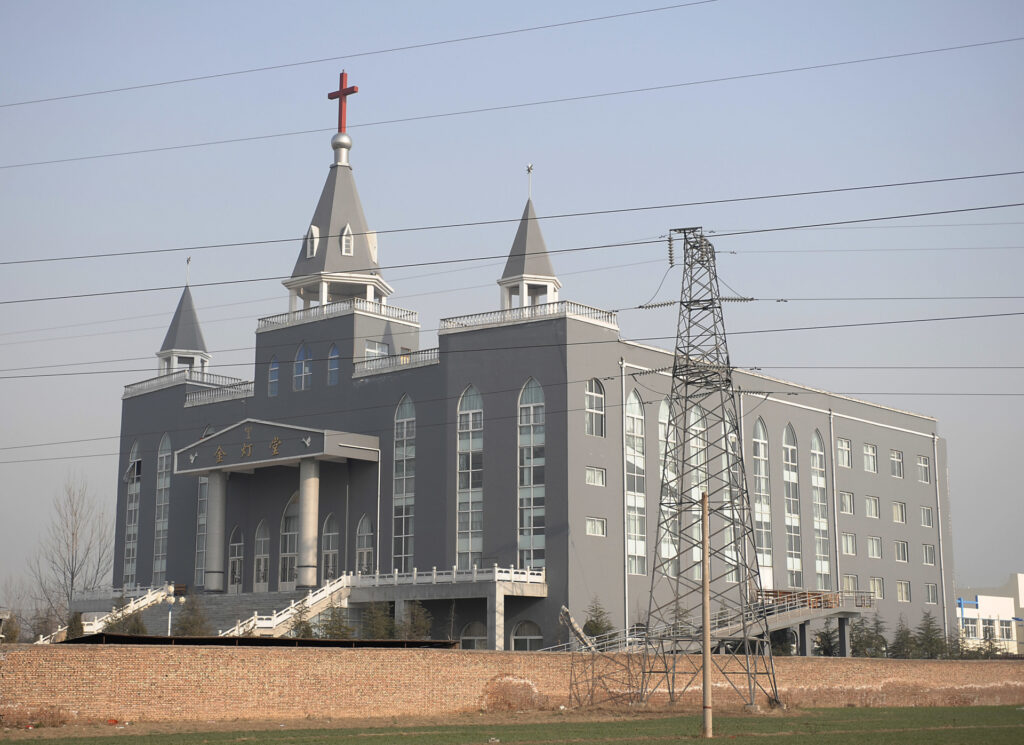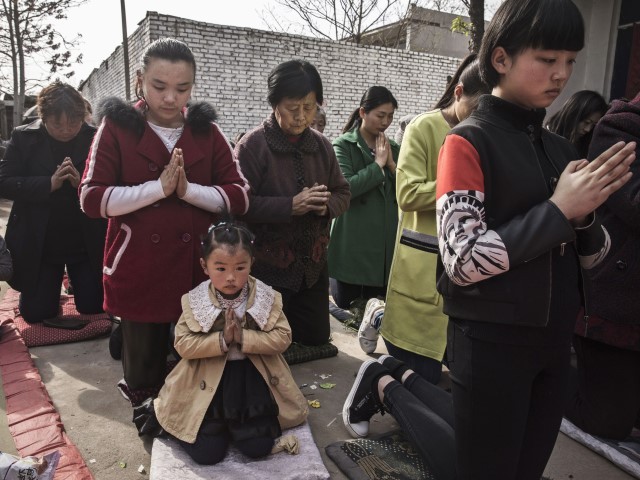ROME — Chinese security forces have arrested Peter Shao Zhumin, the underground Catholic bishop of Wenzhou, who has refused to join the state-run Chinese Patriotic Catholic Association.
Bishop Shao was ordained coadjutor bishop in 2011 with a papal mandate from Pope Benedict XVI but has never been recognized by the Chinese Communist Party (CCP) because of his unwillingness to enlist in the Patriotic Association.
Shao was supposed to assume the leadership of the Catholic diocese of Wenzhou — one of China’s oldest and most vibrant Catholic communities — upon the death of his predecessor, Bishop Vincent Zhu Wei-Fang, in 2016, but he has been prevented by authorities from carrying out his ministry.
Beginning in 2014, the CCP has targeted Wenzhou in its brutal cross-removal program where authorities have removed more than 2,000 crosses from church buildings. The crusade to eradicate the iconic Christian symbol from China’s landscape has included the demolition of crosses and churches as well as beatings and arrests when Christians have attempted to resist.

In this Dec. 6, 2009, file photo, the Golden Lampstand Church is seen in Linfen in northern China’s Shanxi Province. Witnesses and overseas activists say paramilitary troops known as the People’s Armed Police used excavators and dynamite on Tuesday, Jan. 9, 2018, to destroy the Golden Lampstand Church, a Christian mega-church that clashed with the government. (Andy Wong, File/AP)
In place of Bishop Shao, the Chinese government instead unilaterally named Father Ma Xianshi, a member of the Chinese Catholic Patriotic Association, to run the diocese of Wenzhou in the absence of a CCP-approved bishop.
According to a report by AsiaNews, the official press agency of the Pontifical Institute for Foreign Missions, police arrested the 61-year-old prelate on the night of January 2, telling him to bring clothes for every season.
“He was ordered to take clothes for spring, summer, autumn, and winter,” said an unnamed source. “This suggests that his situation is not promising and that he will probably be held for a long time. The faithful are worried because they don’t even know where he will be detained.”
Local faithful report that Bishop Shao is regularly detained during Christian festivities to prevent him from leading public celebrations.
The reason for his most recent arrest seems to be a protest voiced by the bishop in a letter to Fr Ma on December 31.
“In 2019, without my permission, there was a change in parishes and a transfer of priests from this Church, and the unauthorized downgrading of the Diocese of Lishui to parish status under the Diocese of Wenzhou,” Bishop Shao said in the letter.
“After four years, I read again about a division of parishes and the transfer of priests without the bishop’s permission. I wrote to you immediately to ask for a nomination,” he wrote.
“The same applies to the promotion of seminarians. According to the law of the Church, it is necessary to be ordained personally by the bishop of the diocese or to have power of attorney from him,” he added.
“Pursuant to the Code of Canon Law, anyone who receives holy orders from someone who lacks legitimate power to ordain is automatically suspended,” he stated.
Last August, religious freedom champion Nina Shea criticized Pope Francis for his policy of appeasement with China, insisting that it emboldens President Xi Jinping in his oppression of Chinese Christians.
China’s Catholics and the faithful of other religions face “the worst repression since Mao,” wrote Shea, director of the Hudson Institute’s Center for Religious Freedom, and the Vatican’s 2018 agreement granting Beijing a say in the appointment of Chinese bishops has only served Chinese Communist Party (CCP) interests.
In point of fact, Beijing has exploited the Vatican’s weakness to push through unilateral decisions harming the Catholic Church, knowing it will receive no serious resistance from Rome.
Last July, for instance, the Vatican announced it would accept China’s autonomous appointment of Bishop Joseph Shen Bin as the new bishop of Shanghai, a move the CCP made in open breach of its 2018 accord with the Vatican.
Shen was appointed by the state-run Council of Chinese Bishops, an organization of which Shen himself was the head. Shen has pledged to uphold the CCP’s principles of Chinese Church independence and self-administration and the campaign of “Sinicizing” Catholicism in China.
Writing in the Wall Street Journal, Francis Rocca said at the time that the Vatican’s capitulation constituted “the latest sign of the pope’s determination to pursue a rapprochement with Beijing despite China’s tightening restrictions on religion.”
In her August article, Shea noted that Beijing is using surveillance technology in churches to ensure compliance with its program of “Sinicization,” whereby churches are obliged to “spread CCP principles” and preach the “values” of the Communist party.
Vatican Secretary of State Cardinal Pietro Parolin has implausibly maintained that Sinicization is simply evangelical “inculturation,” Shea noted.
Last October, the CCP tightened its restraints on religion still further, passing a “Patriotic Education Law” that requires churches and religious groups to adapt their educational activities to promote the party’s official ideology.
“The state is to guide and support religious groups, religious institutes, and religious activity sites in carrying out patriotic education activities, enhancing religious professionals’ and believers’ identification with the great motherland, the Chinese people, Chinese culture, the Chinese Communist Party, and socialism with Chinese characteristics,” the law states.
The law mandates that “all levels and types of school shall have patriotic education permeate the entire course of school education” and that even “the parents or other guardians of minors shall include love of the motherland in family education.”
Diplomatic relations ended between China and the Holy See in 1951, following China’s expulsion of all foreign missionaries. Chinese Catholics then split between the state-controlled Chinese Patriotic Catholic Association and the underground Church faithful to Rome.

Chinese Catholic worshippers kneel and pray during Palm Sunday Mass during the Easter Holy Week at an “underground” or “unofficial” church on April 9, 2017 near Shijiazhuang, Hebei Province, China. (Kevin Frayer/Getty Images)





Comments are closed.